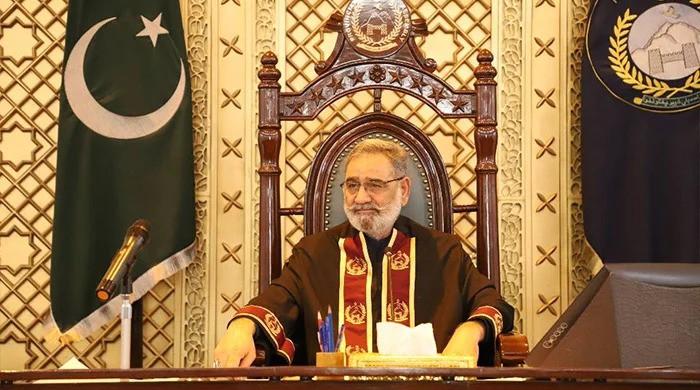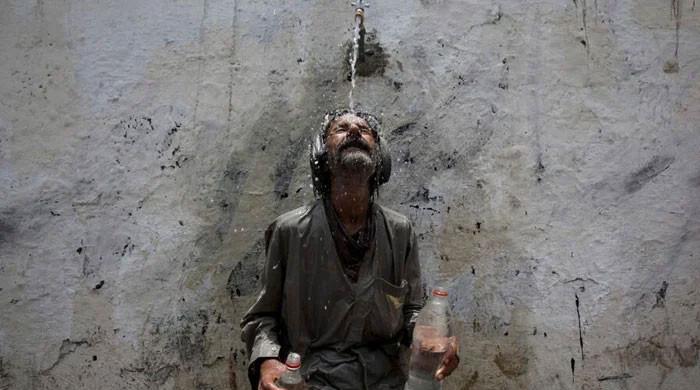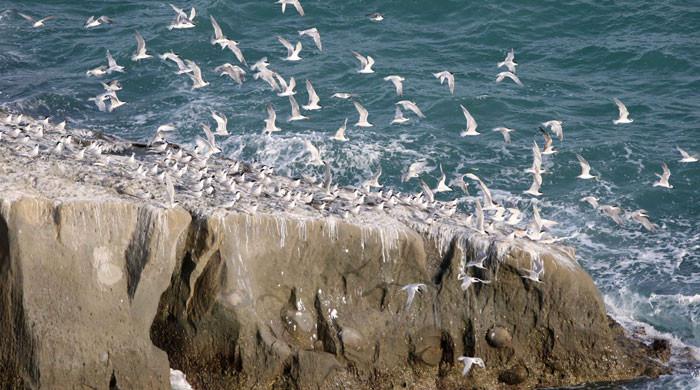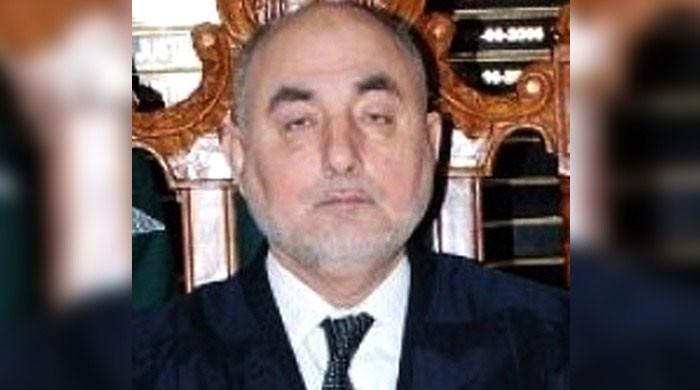SC approves Anwar Majeed's bail plea on medical grounds
Supreme Court issues directives for Anwar Majeed's name to be placed on the ECL
September 02, 2020
ISLAMABAD: The Supreme Court of Pakistan accepted Anwar Majeed's bail plea on medical grounds Wednesday in the fictitious bank accounts case.
A two-member bench of the SC, under Justice Masheer Alam, heard the case today.
The apex court approved the Omni group head's bail plea on medical grounds and issued directives for his name to be included in the Exit Control List.
The court, in its order, asked Majeed to hand over his passport to the registrar office.
On August 15, 2018, then chief justice of Pakistan Saqib Nisar had rejected the Majeed and his son, Abdul Ghani Majeed's pre-arrest bail. Following the proceedings, the Federal Investigation Agency had arrested Majeed outside the courtroom.
'15 investigations, four references pending'
In his remarks, Justice Alam said that the impression that NAB has a “different attitude” towards politicians should dissipate.
Providing arguments, the NAB prosecutor said that Majeed has not appeared before the NAB and since day one has been at the hospital.
“Due to lack of cooperation from Anwar Majeed, 15 investigations and four references are pending,” said the prosecutor.
In response to the prosecutor's statement, Justice Alam urged Majeed to not hinder the anti-graft body's investigations.
Meanwhile, Justice Qazi Ameen said that Majeed has a severe heart ailment and it is his basic right to get treatment.
“No one will go abroad,” Justice Ameen said, adding that the court cannot allow Majeed to go abroad.
Bail to cease in case of non-cooperation with NAB
The court also stated that the bail of the accused will cease in effect if Majeed does not continue to cooperate with the National Accountability Bureau.
The court said that the Omni group incharge has to cooperate with the accountability watchdog in the case's investigation.
The court, in its order, also asked Majeed to submit a bank guarantee of Rs100 million.
What is the fake bank accounts case all about?
In October 2015, the anti-corruption wing of the Federal Investigation Agency in Karachi received a tip-off of suspicious intra-bank transactions from the Summit Bank, Sindh Bank and the United Bank Limited. The profiles of the account holders did not match their earnings/income. FIA authorities suspected that these accounts were being run by the Zardari Group and Omni Group, amongst others.
Read more: Explainer: What is the fake bank accounts case all about?
The case dragged on until June 2018, when the Supreme Court took suo moto notice of the fake accounts and directed a Joint Investigation Team (JIT) to probe the matter.
The investigation team concluded that 32 fake bank accounts were being operated by 11 fake entities to launder money from “kickbacks, land grabbing and large scale misappropriation of public funds.”
Former president Asif Ali Zardari, his sister Faryal Talpur, Hussain Lowai, the then-president Summit Bank, Nasser Abdullah Lootah, chairman Summit Bank, Chairman Omni Group Anver Majid and his son are the prime suspects in the case.
The JIT also concluded from the investigation that the Omni Group had immensely benefited from the transactions. The investigation team stated that the group had a “startling and unprecedented (abnormal) growth 2009 onwards,” interestingly, after the Pakistan Peoples Party (PPP) took power.
From 2008 to 2013, the company grew at a whopping 2,500% and added a total of 83 companies under its umbrella. The growth percentage fell to 142% after 2013, when the PPP lost the central government.











